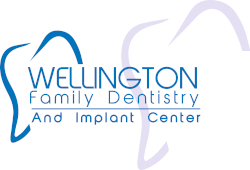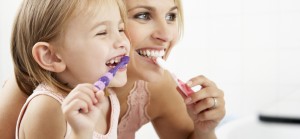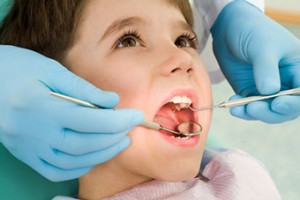Offering sensitive and caring pediatric dentistry for children in Wellington, Colorado
A child’s proper dental hygiene begins in infancy. It is important to know that tooth decay in small children can advance very rapidly, so it is important that you give them proper dental care beginning in their infancy.
Did you know that tooth decay is the most common chronic childhood disease? Tooth decay leads to infected or abscessed teeth, causing them severe pain and resulting in lost sleep, missed school, and possible visits to the emergency room. The American Academy of Pediatric Dentistry has set the standard of asking all parents to create a dental-aware home for their child(ren) by no later than 12 months of age. By making visits to a dentist early in their lives, your children will become used to seeing the dentist; it will allow you to keep any teeth that might have cavities from becoming too far decayed, and it will help to keep you, as the parent, abreast of important dental hygiene needs.
Infant Dental Care
Before you put your infant to bed, we recommend that you wipe your child’s mouth with a damp cloth to remove milk, juice or any other sweetened liquid that will leave a residue on your child’s gums, resulting in early tooth decay. Do not put your child to bed with a “sippy” cup or bottle because this will leave a sugary residue on their gums or teeth. The sugars in the formula, milk, or juice remain in contact with the baby’s teeth for many hours during the night or naptime, and this can cause rapid tooth decay.
Tips and Suggestions for healthy baby teeth
- Use a damp, soft cloth or a soft-bristled toothbrush to clean your baby’s teeth at least twice a day.
- Never put your baby to bed with a bottle filled with milk or juice.
- When your child is asleep, stop nursing and clean teeth with a damp washcloth.
- Read, sing, or rock your child to sleep in place of continuous feeding.
- Don’t let your child use a “sippy” cup or bottle as a pacifier.
- Teach your child to use a cup at an early age. Plan to stop using a bottle by the time your child is twelve to fourteen months old.
- Do not dip your child’s pacifier in sugar or honey.
- Consult with your Dentist about age-appropriate fluoride amounts and supplement usage.
Pediatric Dental Care
As soon as your child begins teething, establish the practice of brushing twice a day. This will instill good dental habits into your child’s routine. Start by using a toothbrush with soft-bristles. You can start with just water or toothpaste that does not contain any fluoride. You can begin using fluoride when your child is old enough to spit. Water contains different levels of fluoride depending on where you live, so we recommend that you consult with Dr. Pringle to determine if an added supplement of fluoride is needed for your child.
As you might expect, being patient while teaching your child to brush is important. They may throw a fit and cry when you try and brush their teeth, but be patient and gently persistent and you will prevail.
It is a good rule of thumb to only allow your child to drink water after they have brushed their teeth at night.
Suggestions for making tooth brushing less of a battle
- Let your child pick a fun character themed toothbrush to use
- Use a fun, flavored toothpaste
- Have multiple toothbrushes for your child so they can pick which one to use each time, which will give them a sense of control
- Make it a family event, have everyone brush at the same time
- Let your child brush your teeth
- Read fun books about tooth brushing to your child
- Let your child eat or drink something that will color his or her teeth and let him or her brush them clean
- Use a tooth brushing chart to help establish a routine
- Use child-friendly flossing aids
- Show your enthusiastic approval of your child’s sparkly clean teeth and fresh breath



